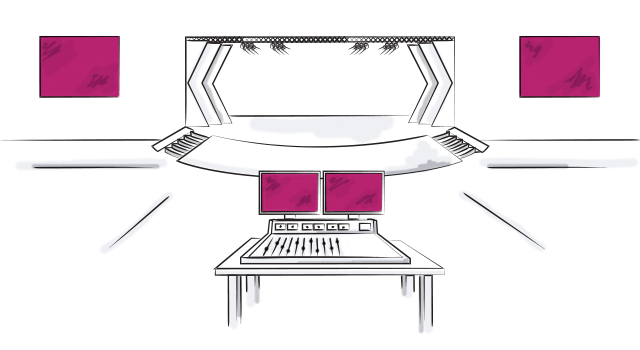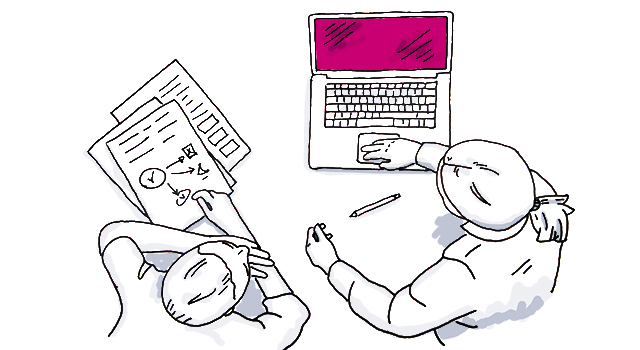
Event Production: Everything You Need to Know
Did you know that event production coordinators make anywhere from $33,000 to $64,000 a year? It’s true!
Find out what else you need to know about event production in this complete guide on the subject. We’ll answer your most frequently asked event production questions.
10 Things You Need to Know About Event Production

1. What is event production?
Event production and event planning are two fields that have some overlap. In many ways, event production is really its own thing entirely. One of the things you need to know about event production is that you can’t have a fully realized event design without help from these experts.
Event production includes every major and minor detail involved in making an occasion a true experience. Whether it’s an intimate gathering of family and friends or a corporate soiree, event production is responsible for transforming your run-of-the-mill get together into a magical affair.
And they must do so on time, within budget, and in collaboration with an event planner (most of the time).
2. What does an event production company do?
When most people think of event production companies, they often picture the people who set up stages and place microphones at events. And while that might be true for some occasions, an event production company will usually be expected to plan, coordinate, and oversee the event, including the following:
- Transforming the given environment to reflect the planner’s goals and event theme
- Renting and setting up lighting rigs, fixtures, and any potential light shows
- Adjusting sound and music levels to enhance the party atmosphere
- Finding ways to evoke certain moods within the space or spaces
- Adding a sense of theatrical ambiance for dramatic events (like art showcases in historic mansions)
- Ensuring that everything goes smoothly from set up to take down
As you can probably tell by now, event production is all about mixing the creative with the practical. Unless they’re highly specialized, event production companies constantly work with a variety of event types, high-end to affordable venues, and planners. This means no two events they execute will ever be truly alike.
They also have shifting responsibility levels. Event production companies might be responsible for the entire event from conception to reality. Or they could be hired solely to carry out the event planners established an image for the shindig. Either way, they’re a valuable addition to any extra-special event planning team.

[Tweet “Event production includes every major and minor detail involved in making an occasion a true experience.”]
3. What are the benefits of working with an event production company?
Here’s just a taste of what the average event production company can do for you:
- They help events run smoothly.
- They arrange everything you need, when you need it.
- They will construct a strategic management plan that covers the event from A to Z.
- They act as a second pair of eyes, ensuring that everything planned is accounted for.
- They evaluate and provide feedback on event logistics.
- They arrange for, hire, or coordinate the right event personnel and equipment.
- They oversee security.
- They assess transportation needs and anticipate location or travel issues for guests.
- They make sure the event matches the clients’ needs and wants as much as possible.
- They come up with backup plans in case things like inclement weather or power outages happen.
- They provide excellent service.
- They use tools like event diagramming software to set your event up for success.
- They have a strong network of high quality and experienced vendors.
- They help you maximize your budget in creative ways.
- They are experienced alongside event planners.
- They typically have connections to exciting entertainment options available for your event.
Obviously, there are many benefits to hiring an event production company. However, you need to figure out if you can even afford them in the first place.
4. How much does event production cost?
Admittedly, event production is one of the more expensive budget items for events. Ultimately your event venue, guest list, and activities will determine the total cost.
The good news is an experienced event production company can work with almost any budget. And they’ll be realistic with you in terms of what you can or cannot afford. At the very least, it’s always worth setting up a consultation and getting their opinion. Chances are they’ve worked with events like yours before, and, if something seems a little too pie in the sky, they will likely suggest some budget-friendly alternatives.
Because being budget-conscious is part of their job description, you can count on an event production team to make sure any hiccups or last-minute changes are completed on time. They’ll also ensure you’re within the given financial constraints, which gives you one less thing to worry about overall.
All that being said, set aside approximately 8-10% of your event budget toward hiring your event production team. Then, reserve 14% for lighting & A/V equipment, 7% for room decor, 4% for printed materials, plus even more for other production related activities. Spending more than a third of your event budget on production is a worthwhile investment!
This is especially true if you’re looking to create a truly remarkable experience for your attendees.
5. What are event production contracts like?
Event production contracts will outline what most basic event vendor contracts usually do: who is involved, the goal of the event, what services you can expect them to provide, etc.
But for this event niche, you can also expect to find things like language around the production’s responsibilities toward all creative and practical event venue choices. No, they won’t get the final say, but they should be contributing the majority of the design ideas to the project.
You may also find that the event production contract says the event production company is responsible for event staffing, including (but not limited to): catering, servers, bartenders, security, valet, and even performing artists.
Check out this example of an event management agreement template. It’s a good starting point for event production companies and a useful reference for event planners. Just so you know what to expect.
6. Event production coordinator: who are they, and what do they do?
Some event planners will create a vision and detailed plan for an event, then leave the rest up to the events team. Event production coordinators, on the other hand, will take those plans (or create some of their own) and make sure that every last detail is taken care of.
When talking about event planning vs coordinating, it’s important to note that not all events need both. But some events may actually need an event planner and multiple event coordinators. Based on your specific event goals and requirements, it should be pretty obvious how big of a team you’ll need.
At the end of the day, your event production coordinator will be like the foreman of a construction site: delegating tasks, following up on quality assurance, and perfecting every component of the master plan.
In fact, experts often recommend for wannabe event planners to begin as event production coordinators.
Later on, when you’re a full-fledged event planner, you can pull from your experience to become a better team collaborator. You’ll also have more confidence in your designs, and obtain a firm sense of what each event component requires from your team in terms of both event timeline and budget.
7. What’s the difference between an event production coordinator and an event producer?
These terms seem somewhat interchangeable. And the event production company you hire might assign only one or both to your event. Here are the responsibilities of each role:
Event Producers
- Conduct the research necessary to determine the needs of your target market and how best to tailor the experience to their interests.
- Researching the event topics and its market viability, including things like related competitor events and industry demand for this subject matter.
- Creating the event’s format and content tailored to the information they obtained during the research phase.
Event Production Coordinators
- Handle teams of people who physically carry out the event vision.
- Make creative choices within the given event format, content, and budget information.
- Come up with event elements that are both practical and imaginative, making sure to plan for and carry out each step of the process until event completion.
In a nutshell, event producers handle analytical and macro event planning strategy while event production coordinators work within the outline of the producer’s plan, filling in the blanks with inventive problem solving, and practical step-by-step procedures.
If you have an event planner on your team, you may not need an event producer. However, if your event planner is overworked, taking on a project they have never done before, or simply needs someone to bounce ideas off of, an event producer would be a highly valued addition to the planning process.
8. How do I find the best event production companies near me?
The best places to find vetted event production companies in your area alongside real client reviews include each of the following platforms:
- Thumbtack. This simple search engine allows you to look for event production companies in or near your zip code. Your results will show a snapshot of their star rating, how many reviews they currently have, how many years they’ve been in business, and an estimated cost per hour.
- Yelp. Not just for restaurants and doctors, Yelp publishes a top 10 list of any subject you can think of in your area. They update this list every single month. These lists include event production companies and event services.
- Clutch.co. Clutch was created specifically for helping you find B2B professionals. You can search for event marketing professionals in any major city. It will show you their basic info, along with a handy graph that illustrates their relative business focuses (and what percentage of their services they dedicate to each one).

You’ll also find that search engines like Google are crawling with SEO-hip event production companies for whatever city you’re in, so your options are practically endless.
When you do finally narrow down your options, be sure to check out these 7 questions to ask an event production company.
9. What should I expect from an event production company?
Although it’s been touched on a few times already, it bears repeating: your event production company is responsible for taking your event dreams and turning them into a reality, on time and within budget.
They should also be highly knowledgeable, experienced, and organized. If they have a team of trained event staff, it should be clear who your point person is and how you’ll communicate throughout the project.
Their contract should clearly outline the responsibilities of both parties and make their anticipated fees crystal clear. And you should also expect them to plan for an event debrief with your team and/or clients once everything is all over.
10. What services are not covered by event production companies?
By now, it seems like an event production company is your go-to for all things event related. But there are some limitations to their event wizardry that you should be aware of before you sign any contracts. For example, they don’t assist with sales or marketing related activities, including ticket sales, fundraising event money collection, or posting to your brand’s social media.
This might seem obvious but when you consider that things like setting up live social media wall displays are part of an event production company’s job description, some areas can get a little gray.
Another example would be live streaming. The event production company may help plan for, set up, and execute an event live stream, but your marketing team will ultimately be responsible for storing that footage and repurposing it for other campaigns in the future.
All in all, understanding the value and role an event production company plays in the grand scheme of your event is an important part of your continuing education in this industry.
If you’re a budding event coordinator, you might also be interested in these event planning tips and this free event planning software.

